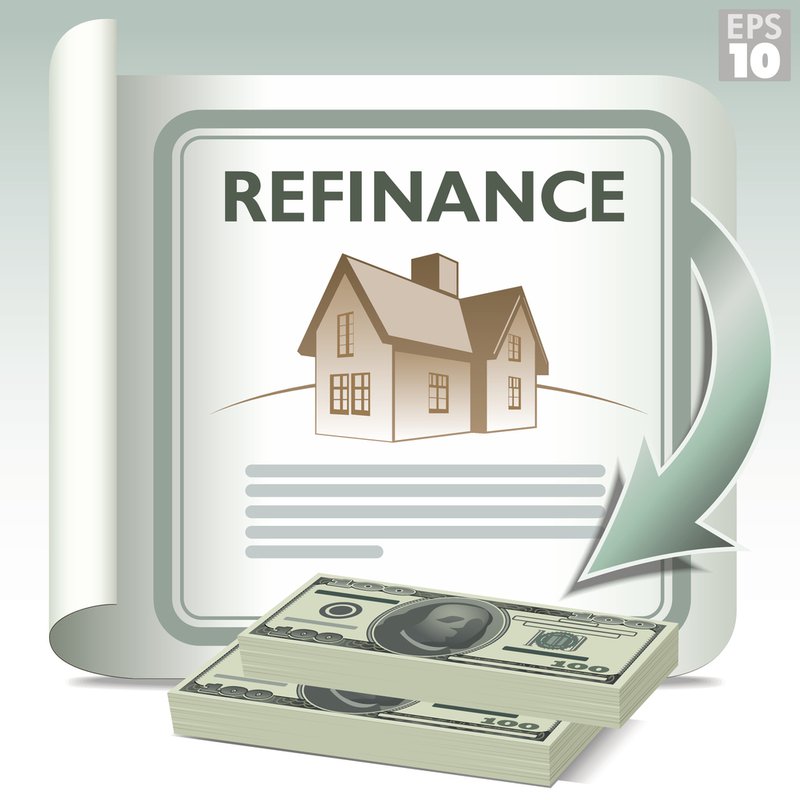
Michele Lerner
Sept. 16, 2020
While many homeowners may be incentivized to restructure their finances by low mortgage interest rates, the decision to refinance your mortgage should be made based on your personal financial circumstances; this week's mortgage rates should not be the deciding factor on whether or not you refinance.
There are nine key considerations to review before applying for a home refinance.

1. Know Your Home’s Equity
The first qualification you will need to refinance is the equity in your home. At the end of the first quarter of 2020, home values were still on the rise in the U.S. according to the Federal Reserve Bank of St. Louis. However, as of the second quarter of 2020, the median sales price of homes sold in the U.S. has declined slightly as a result of the economic recession caused by the global COVID-19 pandemic.1
Furthermore, according to data reported by CoreLogic at the end of the first quarter of 2020, U.S. homeowners with mortgages saw their equity increase by a total of nearly $590 billion since the first quarter of 2019, an increase of 6.5%, year over year.2
Still, some homes have not regained their value, and some homeowners have low equity. Refinancing with little or no equity is not always possible with conventional lenders. However, some government programs are available. The best way to find out if you qualify for a particular program is to visit a lender and discuss your individual needs. Homeowners with at least 20% equity will have an easier time qualifying for a new loan.3
2. Know Your Credit Score
Lenders have tightened their standards for loan approvals in recent years. Some consumers may be surprised that even with very good credit, they will not always qualify for the lowest interest rates. Typically, lenders want to see a credit score of 760 or higher in order to qualify for the lowest mortgage interest rates.4 Borrowers with lower scores may still obtain a new loan, but the interest rates or fees they pay may be higher.
KEY TAKEAWAYS
- Before you decide whether or not to refinance your mortgage, make sure that you have adequate home equity—at least 20% will make it easier to qualify for a loan.
- Check to make sure your credit score is at least 760 and your debt-to-income ratio is 36% or less.
- Look into terms, interest rates, and refinancing costs—including points and whether you’ll have to pay private mortgage insurance—to determine whether moving forward on a loan will serve your needs.
- Be sure to calculate the break-even point and how refinancing will affect your taxes.
3. Know Your Debt-to-Income Ratio
If you already have a mortgage loan, you may assume that you can easily get a new one. But lenders have not only raised the bar for credit scores; they have also become stricter with debt-to-income ratios. While some factors—such as having a high income, a long and stable job history, or substantial savings—may help you qualify for a loan, lenders usually want to keep the monthly housing payments under a maximum of 28% of your gross monthly income.
Overall, debt-to-income should be 36% or less, although with some additional positive factors some lenders will go up to 43%.5 6 You may want to pay off some debt before refinancing in order to qualify.
4. The Costs of Refinancing
Refinancing a home usually costs between 3% and 6% of the total loan amount, but borrowers can find several ways to reduce the costs (or wrap them into the loan). If you have enough equity, you can roll the costs into your new loan (and thus, increase the principal). Some lenders offer a “no-cost” refinance, which usually means that you will pay a slightly higher interest rate to cover the closing costs. Don’t forget to negotiate and shop around because some refinancing fees can be paid by the lender or even reduced.
5. Rates vs. the Term
While many borrowers focus on the interest rate, it’s important to establish your goals when refinancing in order to determine which mortgage product meets your needs. If your goal is to reduce your monthly payments as much as possible, you will want a loan with the lowest interest rate for the longest term.
If you want to pay less interest over the length of the loan, look for the lowest interest rate and at the shortest term. Borrowers who want to pay off their loan as fast as possible should look for a mortgage with the shortest term that requires payments they can afford.
6. Refinancing Points
When you compare various mortgage loan offers, make sure you look at both the interest rates and the points. Points—equal to 1% of the loan amount—are often paid to bring down the interest rate. Be sure to calculate how much you will pay in points with each loan, as these will be paid at the closing or wrapped into the principal of your new loan.
TIP: Lenders have tightened their standards for loan approvals in recent years, requiring higher credit scores for the best interest rates and lower debt-to-income ratios than in the past.
7. Know Your Break-Even Point
An important calculation in the decision to refinance is the break-even point: the point at which the costs of refinancing have been covered by your monthly savings. After that point, your monthly savings are completely yours. For example, if your refinance costs you $2,000 and you are saving $100 per month over your previous loan, it will take 20 months to recoup your costs. If you intend to move or sell your home within two years, a refinance under this scenario may not make sense.
8. Private Mortgage Insurance
Homeowners who have less than 20% equity in their home when they refinance will be required to pay private mortgage insurance (PMI). If you are already paying PMI under your current loan, this will not make a big difference to you. However, some homeowners whose homes have decreased in value since the purchase date may discover that if they refinance their mortgage, they will have to pay PMI for the first time.
The reduced payments due to a refinance may not be low enough to offset the additional cost of PMI. A lender can quickly calculate whether you will need to pay PMI and how much it will add to your housing payments.
9. Know Your Taxes
Many consumers have relied on their mortgage interest deduction to reduce their federal income tax bill. If you refinance and begin paying less in interest, your tax deduction may be lower. (Although it's important to keep in mind that few people view that as a good enough reason to avoid refinancing).
However, it is also possible that the interest deduction will be higher for the first few years of the loan (when the interest portion of the monthly payment is greater than the principal). Increasing the size of your loan, as a result of taking cash out or rolling in closing costs, will also affect the amount of interest you will pay.
Mortgage lending discrimination is illegal. If you think you've been discriminated against based on race, religion, sex, marital status, use of public assistance, national origin, disability, or age, there are steps you can take. One such step is to file a report to the Consumer Financial Protection Bureau or with the U.S. Department of Housing and Urban Development (HUD).
That said, provisions of the Tax Cuts and Jobs Act, passed into law in December 2017, may affect your desire to use the mortgage interest deduction. The new higher standard deduction—$24,400 for married couples filing jointly in 2020, compared to $12,700 under the previous law—may make itemizing deductions less financially attractive to more taxpayers.
Wealthier homeowners who want to refinance a large existing mortgage will still be able to deduct interest on up to $1 million in mortgage debt, but the limit for new mortgage debt is now $750,000 for homes bought on December 15, 2017, or later. Given these changes, it’s wise to consult a tax advisor for individual information on the impact of refinancing on your taxes.
The Bottom Line
Like many financial transactions, mortgage refinancing is complex and requires due diligence on the part of homeowners considering it. Speak with a reputable lender for quick answers to some of your concerns. This will help you make the important decision as to whether refinancing is right for you. If it seems like it would be a good move, do the research homework discussed above.



